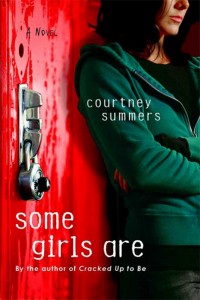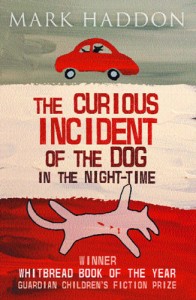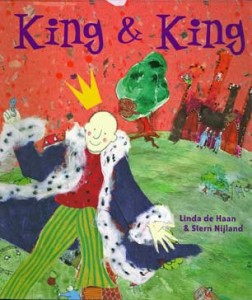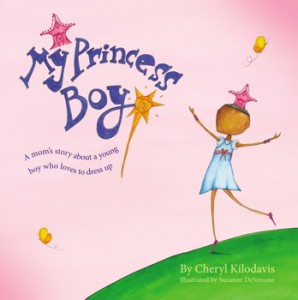2015 was a busy year for free speech. To celebrate, our frequent partner in protecting free expression, the National Coalition Against Censorship (CBLDF is a sponsor of NCAC’s Kids’ Right to Read Project), looks back on 15 heroes who faced down censorship around the world. Let’s take a closer look at some of the censorship these individuals helped fight in 2015…
Some Girls Are in Charleston, South Carolina
 In July, based on one parental complaint, Courtney Summer’s novel Some Girls Are was pulled from the optional summer reading list for freshman Honors English at West Ashley High school in Charleston, North Carolina. Citing objections to the book’s depiction of underage drinking, drug use, and sexual assault, in a knee-jerk reaction to “accommodate the parent’s concern” Principal Lee Runyon had the book pulled from the reading list, bypassing district policy, which requires that challenged books be reviewed by the school board.
In July, based on one parental complaint, Courtney Summer’s novel Some Girls Are was pulled from the optional summer reading list for freshman Honors English at West Ashley High school in Charleston, North Carolina. Citing objections to the book’s depiction of underage drinking, drug use, and sexual assault, in a knee-jerk reaction to “accommodate the parent’s concern” Principal Lee Runyon had the book pulled from the reading list, bypassing district policy, which requires that challenged books be reviewed by the school board.
Shortly thereafter, CBLDF joined a coalition led by the Kids’ Right to Read Project, pointing out how Runyon’s decision not only violated district policy, but also the academic integrity of school’s curriculum. A formal letter was submitted to WAHS in the hopes that the school would rescind their decision and have the book reinstated in the optional reading list.
Although the decision to pull Some Girls Are from the optional summer reading list was not withdrawn, one former librarian, Kelly Jensen, started an immensely successful book drive to get copies of the book back into Charleston teens’ hands. Teaming up with librarian Andria Amaral, Jensen’s dream to collect maybe 15 to 20 copies of the book quickly escalated into 830+ donated books, over $600 in donated funds for shipping costs, a letter from author Courtney Summers, and a city-wide right to read event that challenged the school’s decision and got teens reading.
Some Girls Are may not have made its way back onto the reading list at WAHS, but due to the proactive efforts of Kelly Jensen and the Charleston community the book did make it into teen’s hands. “The image of teenagers being able to pick up this book, read it, and decide for themselves how they think — it’s powerful,” said Jensen. “And I can only imagine how excited they are when they learn that they not only get to read the book, but they get to keep it.”
- Charleston Principal Removes Some Girls Are from Summer Reading List
- CBLDF Joins Coalition Protesting Book Ban in South Carolina
- Former Librarian Counters Some Girls Are Ban in SC with Huge Book Drive
The Curious Incident of the Dog in the Night-Time in Leon County, Florida
 Also during the summer, Mark Haddon’s award-winning novel The Curious Incident of the Dog in the Night-Time came under attack in Leon County, Florida, when Lincoln High School Principal Allen Burch violated the school policy on challenged materials by making the unilateral decision to remove the title from the summer reading program. After some parents complained about the books usage of profanity and “religious skepticism,” Burch took it upon himself to pull the book from the summer program without consulting a review committee. His reason: He wanted to “give the opportunity for the parents to parent.”
Also during the summer, Mark Haddon’s award-winning novel The Curious Incident of the Dog in the Night-Time came under attack in Leon County, Florida, when Lincoln High School Principal Allen Burch violated the school policy on challenged materials by making the unilateral decision to remove the title from the summer reading program. After some parents complained about the books usage of profanity and “religious skepticism,” Burch took it upon himself to pull the book from the summer program without consulting a review committee. His reason: He wanted to “give the opportunity for the parents to parent.”
In response to the decision, CBLDF joined a coalition led by the Kid’s Right to Read Project and submitted a formal letter to the school urging the school to have the book reinstated. In the letter KRRP pointed out that Burch’s decision violated school policy which states that no challenged material may be removed solely because it presents ideas that may be unpopular or offensive to some.”
In the end the school board stood by Burch’s decision, but in response to the incident LHS senior Jaclyn Weinell decided to speak out about how the decision not only violated student’s right to read, but also served as a cautionary tale of the dangers of school censorship. In her editorial piece to the Tallahassee Democrat, Weinell chastised her school for not trusting students — especially high school students — to handle difficult materials.
Along with the editorial piece, Weinell also posted flyers around her school encouraging her peers to pick up a copy of the book to read. “If administrators do their jobs correctly, this should never happen again,” wrote Weinell. “An alternate book assignment should have been offered and enforced. How can students learn “the difference between right and wrong” if they aren’t exposed to multiple opinions and allowed to form their own? How can we expect to gain a full education and prepare for adult life if we have gaps wherever a curse word is involved?”
- CBLDF Joins Coalition Protesting Curious Ban in Florida
- School Board Stands by Curious Censorship in Florida
- Florida Student Chastises Schools and Parents for Curious Censorship
King and King in Orange County, South Carolina
 Earlier this year, it wasn’t just a book that became the center of controversy at Efland-Cheeks Elementary School in Orange County, South Carolina; teacher Omar Currie also came under fire when he read the children’s book King and King to his third-grade class. In response to seeing a boy in his class being bullied for acting a “little feminine,” Currie decided to use the book about two princes who fall in love to teach his students to embrace all kinds of people. Some parents, though, felt that the book was inappropriate for the students and launched a series of challenges. For school officials, King and King was a title that “might have been appropriate to read in a more progressive area without parental consent,” Currie recalls.
Earlier this year, it wasn’t just a book that became the center of controversy at Efland-Cheeks Elementary School in Orange County, South Carolina; teacher Omar Currie also came under fire when he read the children’s book King and King to his third-grade class. In response to seeing a boy in his class being bullied for acting a “little feminine,” Currie decided to use the book about two princes who fall in love to teach his students to embrace all kinds of people. Some parents, though, felt that the book was inappropriate for the students and launched a series of challenges. For school officials, King and King was a title that “might have been appropriate to read in a more progressive area without parental consent,” Currie recalls.
Unfortunately in response, to the “absurdity” of the situation and lack of school support at Efland-Cheeks ES, Omar Currie resigned from his position. “I’m a champion of my kids,” Currie commented in an interview with News & Observer. “I fight tooth and nail for every single thing that my kids need.”
Although the school did not stand behind Currie, his community did. In July, Chapel Hill Public Library held an event entitled “Between the Lines” to talk about the book as well as the rising epidemic of knee-jerk reactions to pull books from schools when the material isn’t to one person’s liking. Guests included not only Currie, but also several University of South Carolina instructors and Mark Kleinschmidt — the first openly gay mayor of Chapel Hill. Elfand-Cheeks ES may have not seen value and good intentions behind Currie’s decision to read the book, but in the aftermath of a horrible event the Chapel Hill community stood by him and the right to read.
- North Carolina Teacher Under Fire for Reading Same-Sex Fairy Tale in Class
- “I Am A Champion for My Kids”: Teacher Battles Burdensome Notification Policy
- School Decision Does Not Make for a Fairytale Ending for Teacher
- Between the Lines: NC Library Holds Events for Controversial Kid’s Book
My Princess Boy and other LGBTQ Books in Hood County, Texas
 Early this summer, 50 residents of Hood County, Texas filed formal challenges with their local public library calling for the removal of two LGBTQ-themed books from the children’s book section. Both My Princess Boy and This Day in June came under attack of Hood County residents, claiming that the age-appropriate books promoted “perversion” and “the gay lifestyle.” When library officials, including library director Courtney Kincaid, refused to have the books moved out of the picture books section, members of the community issued a petition to have the books removed from the library altogether.
Early this summer, 50 residents of Hood County, Texas filed formal challenges with their local public library calling for the removal of two LGBTQ-themed books from the children’s book section. Both My Princess Boy and This Day in June came under attack of Hood County residents, claiming that the age-appropriate books promoted “perversion” and “the gay lifestyle.” When library officials, including library director Courtney Kincaid, refused to have the books moved out of the picture books section, members of the community issued a petition to have the books removed from the library altogether.
In response to the petition, CBLDF joined a coalition led by the Kid’s Right to Read Project to support Kincaid’s decision and keep the two books in the library. Citing constitutional issues if the books were removed, a formal letter was sent to the Hood County authorities to share with them the dangerous implications of creating “barriers to [library patrons] access to fully-protected information.”
Culminating in a county-wide meeting, supporters of not only LGBTQ rights but also free speech gathered to discuss the issue resulting in the decision to keep both books in the library. Hood County Attorney Lori Kaspar agreed with the Kid’s Right to Read Project’s letter that to forcibly remove the books would be “a form of censorship and violation of the law.” Although, some dissenting community members continued to argue their case against the books, it was the overwhelming support from the Hood County community given to Kincaid who stood by her decision from the beginning that kept the books on library shelves.
- Fifty Challenges Filed Against LGBTQ Children’s Books in Rural Texas County
- CBLDF Joins Coalition Defending LGBTQ Children’s Books in Hood County
- VICTORY in TX: LGBTQ Books Remain in Hood County Library
Charlie Hebdo, Paris, France
On January 7, the world was shocked when terrorists attacked the offices of satirical magazine Charlie Hebdo in Paris France, killing 12 people including cartoonists Charb, Cabu, Wolinski, Tignous, and Honoré. The terrorists attacked the Charlie Hebdo offices in retaliation for the magazine’s publication of cartoons depicting the prophet Muhammad, an act that is considered blasphemy.
In the wake of the attacks, many proclaimed “Je Suis Charlie” (“We Are Charlie”) in solidarity with the victims and survivors of the attacks. For many press outlets, though, their bravery stopped with the declaration, and they refused to reprint some of the controversial cartoons for which Charlie was attacked. Gawker, Buzzfeed, Daily Beast, Vox, the Huffington Post, and The Washington Post were some of the few outlets that shared Charlie Hebdo’s cartoons with the world.
CBLDF also shared Charlie Hebdo‘s controversial cartoons, joining Index on Censorship and Pen America in calling for the publication of the cartoons, declaring that “We believe that only through solidarity – in showing that we truly defend all those who exercise their right to speak freely – can we defeat those who would use violence to silence free speech.”
- Still Defiant: New Issue of Charlie Hebdo Sells Out
- Comics World Responds to Charlie Hebdo Attack
- World Mourns Victims of Charlie Hebdo Attack
- A Moment of Speech: Charlie Hebdo’s Controversial Cartoons
- Stand Up for Free Speech: Publish Charlie Hebdo’s Cartoons
- CBLDF Joins Condemnation of Charlie Hebdo Attack
- BREAKING NEWS: Charlie Hebdo Attack Kills 12, Including 5 Cartoonists
Read NCAC’s full list of 2015 challenges and free speech heroes here.
Help support CBLDF’s important First Amendment work in 2015 by visiting the Rewards Zone, making a donation, or becoming a member of CBLDF!
Contributing Editor Caitlin McCabe is an independent comics scholar who loves a good pre-code horror comic and the opportunity to spread her knowledge of the industry to those looking for a great story!